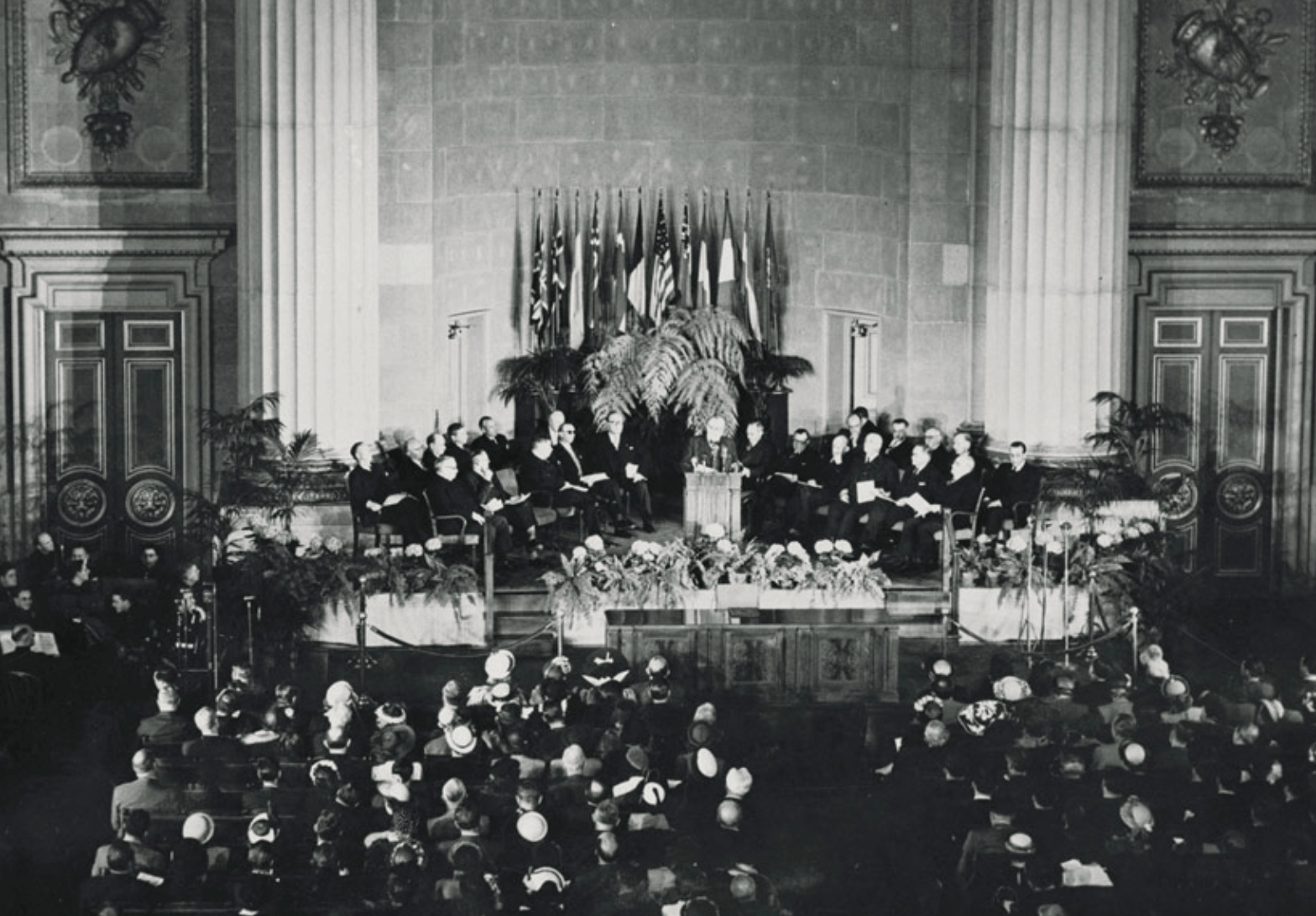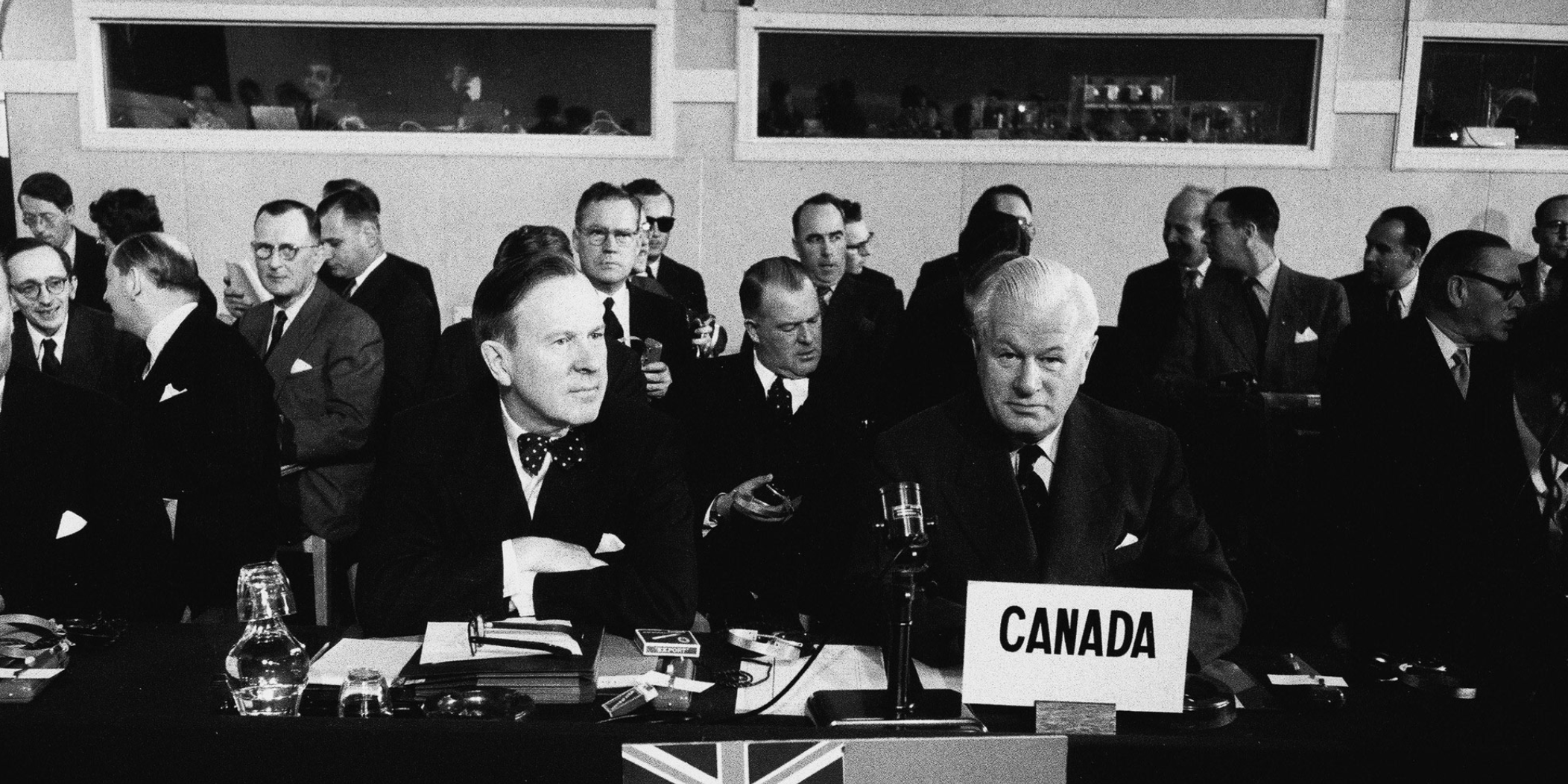Our Policy Package on NATO at 75

Signing of the North Atlantic Treaty, Mellon Auditorium, Washington, April 4, 1949/NATO archive.
Welcome to our Policy thematic package on the 75th Anniversary of NATO. Conceived in that post-WWII/pre-Cold War burst of multilateralism that also saw the creation of the United Nations, the Bretton Woods financial institutions and the General Agreement on Tariffs and Trade, the North Atlantic Treaty, per its preamble, swore its signatories to “safeguard the freedom … of their peoples, founded on the principles of democracy, individual liberty and the rule of law.” Canada was, of course, among the 12 original members of the alliance. Our Policy contributors look at how that role has shaped both NATO and Canadian diplomacy, at where the alliance stands today amid its post-Ukraine renaissance, and at what perils may lie ahead.
We open with Policy contributor Michael Manulak of Carleton University’s Norman Paterson School of International Affairs, on the past, present and future of NATO, including the crucial role played by Canadians Louis St. Laurent, Lester Pearson and Hume Wrong in the founding of the alliance. “While Canada had also made headway in drafting Article 2, the so-called “Canadian article” on social and economic affairs, and in multilateralizing NATO’s Military Committee,” writes Manulak of the negotiations over the text of the North Atlantic Treaty in 1949, “no Canadian contribution to forging the alliance was as significant and lasting as helping to ensure a strong Article 5.” Here’s Michael Manulak with Canada and NATO at 75: Enmeshment Diplomacy Redux.

Examples of electromagnetic warfare/NATO Joint Air Power Competence Centre
From Elinor Sloan, former Defence Department analyst and current professor of International Relations in the Department of Political Science at Carleton University, we have a look at where Canada fits into NATO’s new warfare status quo. “The combination of traditional military requirements, cutting-edge technology, and fledgling but advancing AI is creating what some have called a ‘new kind of industrial war’,” writes Sloan, in her must-read primer on the new warfare. “Canada will be challenged to respond to these military requirements.” Here’s Elinor Sloan with NATO, Canada and the Demands of the New Battlefield.
And, from Colin Robertson, former career diplomat and our longstanding diplomacy and security expert, we have a scene-setter for the Washington summit. “Inevitably, corridor discussion will revolve around changes caused by the various European elections and the implications of a return of Donald Trump to the White House,” writes Robertson. “The contrast is stark: a committed Atlanticist, Biden rallied the alliance over Ukraine. Trump disparages allies as freeloaders while claiming he can resolve Ukraine in a matter of days.” Here, from Colin Robertson, is NATO at 75: The Alliance Endures.
 Canadian Foreign Minister Lester Pearson (L) at Germany’s accession to NATO/NATO archive
Canadian Foreign Minister Lester Pearson (L) at Germany’s accession to NATO/NATO archive
In related Policy links for additional background and context, here are:
From Colin Robertson, July 2023: NATO Meets a World of New Threats and The NATO Vilnius Takeaway: Managing the Perils of a Small World.
From Kerry Buck, July 2023: The New NATO: What to Watch for in Vilnius.
From Lisa Van Dusen, December 2019: NATO and the Intelligence Technology Complex.
Visit us at Policy Online, where you’ll find our latest Policy Specials, Columns, Dispatches, Analysis, Book Reviews, Verbatimsections, plus The Week in Policy and all our posted print issues.
